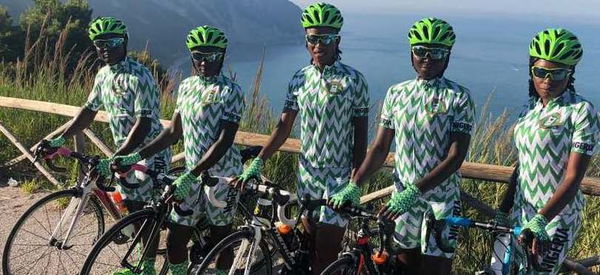

Doping and competitive sports have gone hand in hand since the dawn of sport. Athletes with a competitive mindset often lose sight of the bigger picture in the pursuit of their goals. While athletes are mostly honest human beings in love with the spirit of a game, occasionally they let competition costume them. That’s when things turn ugly – when they don’t mind paying any price to win.
While Lance Armstrong is the most popular cyclist found guilty of doping, the sport is hardly short on names that have indulged. The latest name joining that list is Argentinian rider Juan Pablo Dotti, who has tested positive for prohibited substances at the Road World Championships in Glasgow.
Dotti tested positive for CERA right after finishing 46th among 77 finishers during the Road World Championships, crossing the line at 7:06.
ADVERTISEMENT
Article continues below this ad
Dotti Out For CERA
As of September 26, Dotti is serving a provisional suspension, adding to UCI’s long list of names likes of Miguel Angel López and Robert Stannard. The Argentine has already served a doping ban for two years in 2011. At the time, he had tested positive for an anabolic agent and amphetamines. This time around, if his B sample returns positive, Dotti will serve a four-year suspension. Dotti’s positive test for CERA (continuous erythropoietin receptor activator) would be cycling’s first since the plethora of athletes banned in South America between 2016 and 2018.
Read More: US Cycling Star Recently Accused of Mechanical Doping on the Verge of Winning Vuelta
In 2016, the Brazilian Funvic squad faced a team suspension when three of their cyclists tested positive for CERA within a five-month period. The subsequent year, Colombian U23 champion Róbinson López received a suspension due to a positive test. A group of twelve riders competing in the Vuelta a Costa Rica were similarly banned following positive test results.
CERA has been around in cycling since the 2000s. While it was approved to treat anemia patients in 2007, it has since emerged on many peleton-related doping tests. Roche Pharmaceuticals, which produced CERA, cooperated with WADA, somehow giving the testers a rare headstart in the fight against doping.
History of Doping in Cycling
A number of high-profile riders faced bans for CERA in 2008 and 2009 as it appeared in their doping tests. Saunier Duval riders Riccardo Riccò and Leonardo Piepoli tested positive for CERA during the 2008 Tour de France. Giro King of the Mountains winner Emanuele Sella followed suit.
In 2009, the Gerolsteiner cycling team also faced dire repercussions. Their riders Stefan Schumacher and the late Davide Rebellin served bans after positive drug tests during the 2008 Olympic Games. Tragically, Rebellin also lost his silver medal in the road race event.
Later, Danilo Di Luca also faced sanctions. Additionally, he had his second-place finish in the Giro d’Italia nullified due to positive test results during the race. Besides this, the Portuguese team Liberty Seguros encountered doping issues as well. Three of their riders, including race winner Nuno Ribeiro, tested positive during the Volta a Portugal.
Watch This Story: The New Northaven Trail Bridge: A Marvellous Addition for Cycling Enthusiasts
ADVERTISEMENT
Article continues below this ad
ADVERTISEMENT
Article continues below this ad
ADVERTISEMENT
ADVERTISEMENT
ADVERTISEMENT
ADVERTISEMENT

